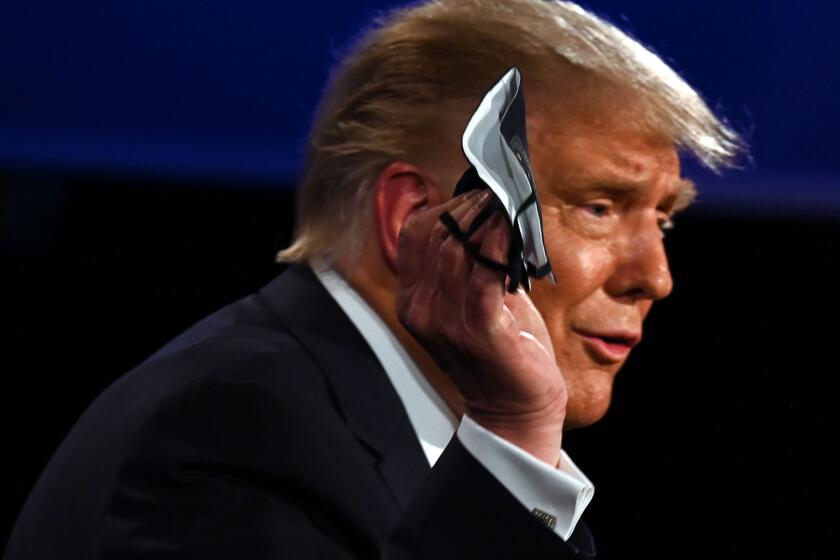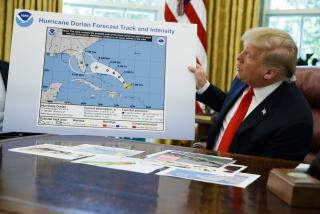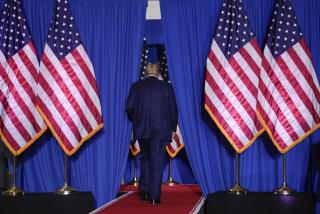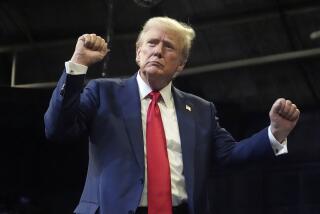Trump’s falsehoods lead many to question news of his COVID-19 illness
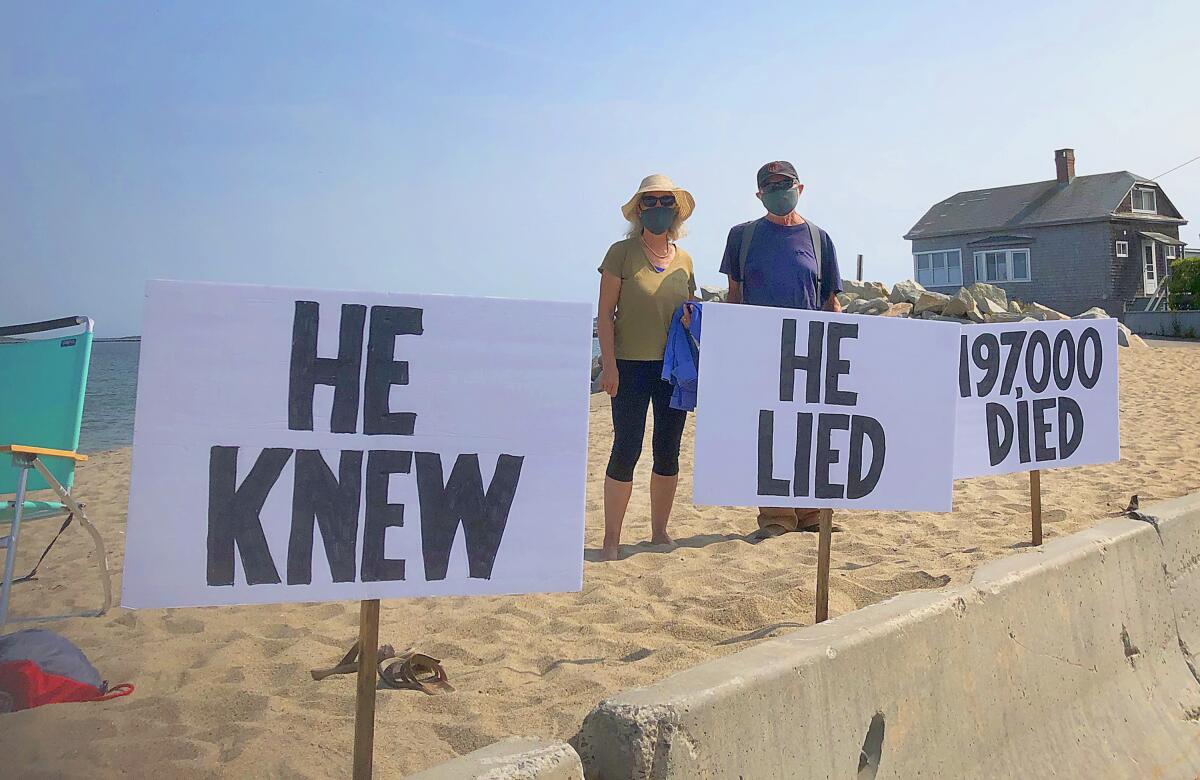
- Share via
In the hours after President Trump rocked American politics and the course of the presidential campaign by announcing he had tested positive for the coronavirus, many liberals across the U.S. grappled with the same question: Do you believe a serial liar?
On Friday, before it was announced Trump’s condition had worsened and would be heading to a military hospital for observation, liberal social media posts and group chats were rife with conspiratorial speculation. Could such an announcement, one month before the election, be a ploy by a president who is himself a conspiracy theorist who has downplayed COVID-19’s seriousness, and who polls show trailing Democratic nominee Joe Biden?
For the record:
5:52 p.m. Oct. 2, 2020A previous version of this article incorrectly identified the WURD radio host as Malcolm Kenyatta. The host quoted is Solomon Jones.
“Here’s how wrecked Trump’s credibility is at this point: I’ve got a cellphone full of texts from people who aren’t sure whether to believe Trump actually has covid,” MSNBC host Joy Ann Reid tweeted Friday morning. “‘He lies so much,’ one friend just texted. ‘Is he just doing this to get out of the debates?’ others are texting.”
Jon Ehrens, a producer for WHYY radio in Philadelphia, estimated on Friday morning that “90% of listener emails/comments are very insistent that the diagnosis is a lie,” tweeting that listeners’ conspiracy theories also included “finding an excuse for why he will lose the election” or “to prove that the coronavirus is no big deal.”
On ABC’s “The View,” host Sunny Hostin questioned guest Jonathan Karl, a longtime political reporter, about why Trump’s prognosis should be believed, given Trump’s past obfuscations about his health.
“I personally would prefer,” Hostin said, “to hear information from doctors, not necessarily his physician ... but maybe physicians at Walter Reed, or Dr. [Anthony] Fauci,” the director of the National Institute of Allergy and Infectious Diseases.
“The sad truth is that we really can’t trust at face value what comes out of the White House on this,” Karl responded, saying that reporters “have to ask the questions” and will try to verify the information they get. “But there’s been so much misinformation that has gone out about the virus, about the pandemic, about things like voter suppression — it’s really hard to know what to believe.”
There are few subjects that have been as rich with conspiratorial thinking, disinformation and propaganda as the COVID-19 pandemic. In May, a 26-minute video called “Plandemic” spread rapidly across social-media platforms alleging that wealthy people were intentionally spreading the virus to increase vaccination rates and that wearing a mask can worsen symptoms. (No.)
Questions and answers about Trump, hospitalized with COVID-19 symptoms, and what might happen next in the election and with any possible transition of power.
Other discredited conspiracy theories have included that the virus was a bioweapon engineered by China to kill Uigher Muslims or by the U.S. to destroy China’s economy.
Right-wing conspiracy theorists associated with QAnon, which believes there is a global liberal cabal of human traffickers — and which has been compared to a cult — have also disbelieved the Trump diagnosis and view it as a cryptic and complex maneuver in the president’s greater fight against the inscrutable evildoers. (If that sounds weird, it’s also nothing particularly new.)
While Trump’s presidency, paired with a historic pandemic, has been a singular experience in America’s democratic experiment, health problems and lapses in transparency have been a common staple of time in the White House. At least 14 of the 19 presidents to serve in the 20th century had significant illnesses while serving in office, according to academic research, and several of them hid their maladies from the public.
In one of the most notable episodes, during the devastating flu pandemic of 1918-19, President Woodrow Wilson contracted the virus and became “violently sick” during World War I peace negotiations in France. He survived that illness but was struck much more seriously by a stroke six months later that left him diminished for the remainder of his presidency. Wilson’s condition was kept a secret, and his wife, Edith, helped run the White House until the end of Wilson’s term in 1921.
On Friday, listeners to radio stations catering to Black audiences expressed profound distrust on air and in posts on the radio stations’ social media pages.
“Who knows if this is true,” a listener of Dallas’ KKDA-FM wrote on its Facebook page. “It could be a political stunt.”
A caller on the WURD FM/AM morning show in Philadelphia told host Solomon Jones, “I don’t believe that that man has the coronavirus.”
“That’s just another trick to take our minds off of what is really up their sleeve,” he said.
Jones told listeners that he could understand why so many callers said they don’t know whether or not to believe that Trump is infected with the virus. Their skepticism, however unfounded, was of Trump’s own making, he said.
“I get it,” Jones said on air, raising his voice. “He’s lied so much, tens of thousands of lies — documented. He was lying in the debate! He’s like the devil. You can’t believe anything he says.”
More to Read
Get the L.A. Times Politics newsletter
Deeply reported insights into legislation, politics and policy from Sacramento, Washington and beyond. In your inbox three times per week.
You may occasionally receive promotional content from the Los Angeles Times.
